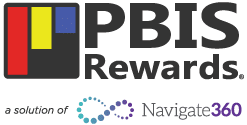When it comes to student success, one factor affects learning more than any other: parent involvement.
In fact, students with one or both parents active in their education are nearly twice as likely to succeed in school. This is most obvious when it comes to grades, but parental engagement also affects student confidence, involvement, and attitude.
Educators have long known about the connection between parent involvement and student success. Studies show that students with involved parents – regardless of their income or educational background – are more likely to:
- Earn higher grades
- Exhibit positive behaviors
- Have better social skills
- Attend school regularly
- Seek out higher educational opportunities
- Pass classes and ultimately graduate
Parental engagement not only results in students who are better prepared for academics. It also assists schools in providing a quality education.
Encouraging Parent Involvement
For some parents, however, their connection to their child’s school career can be limited. The reasons for this are many. Work schedules, family obligations, lack of transportation, and their own experiences as students can cloud some parents’ ability and willingness to participate more fully. Others may feel that they have no authority in the school setting and see their involvement as overstepping boundaries. For parents of troubled students, feelings of helplessness or embarrassment may keep them from communicating with the school.
Whatever the reasons, encouraging parent involvement calls for a mix of communication and encouragement from the school. Consider these ideas:
Boosting Parent Engagement
- Communicate expectations clearly. At the beginning of the school year and various points afterward, communicate your school’s behavior matrix to parents. Concepts such as “Responsible, Respectful, and Ready to Learn” mean very little without further explanation. Just as you teach your students what these behaviors look like in various settings, inform their parents about these expectations. Once parents know what “Respect” looks like in the school cafeteria, they can reinforce such behavior at home, as well.
- Create school community events. Many schools schedule an “open house” night at the start of the school year. While this is a great way to begin the year, it should not be the only opportunity for parents to visit the school. Offering fun, family-focused, no-pressure events such as school carnivals, movie nights, or talent shows will help build relationships between your staff and parents.
- Encourage outreach to parents. If, despite your best efforts, you are unable to draw some parents into your school community, focus on reaching out to them in a friendly manner. Most parents will respond favorably to this kind of outreach if they feel your intentions are genuine.
- Ask parents for input. Creating a dialogue between parents and the school can help you to understand their challenges as well as learn where you need to improve. Many times, parents don’t feel as if they can influence what happens at school. Let them know you are on the same team.
- Make positive phone calls home. All too often, a phone call from the school means someone is sick, hurt, or in trouble. Change that by asking your staff to make positive phone calls to parents to praise their child. It can impact the school’s relationship with the student and with their parent.
- Offer more than one way to contact teachers. Parent-teacher conferences are a time-honored tradition, but they don’t have to be the only point of contact between staff and parents. Encourage teachers to offer multiple methods of contact for parent-teacher communication – such as handwritten notes, email, or phone calls – throughout the school year.
PBIS and Parent Communication
When your school begins a PBIS initiative, including parents in the process is critical to the overall success of your efforts. Schoolwide expectations, when paired with reinforcement at home, can change your school’s climate in numerous positive ways.
Traditionally, PBIS programs have relied on paper-based methods to operate. Physical tickets and tokens, manual accounting, and paper reports home have long been the standard. For parents, this additional influx of paper can be an added burden, particularly if they must sign and return the reports.
PBIS Rewards, on the other hand, is fully digital, right down to the parent-teacher communication component. The free PBIS Rewards Parent App allows parents to view their child’s progress within your school’s PBIS initiative. Parents can download the app from Google Play, the App Store, and Amazon Apps.
Two-way communication between the parent and the school is one of the features of PBIS Rewards and can be accessed within the Parent App. This eliminates the constant exchange of papers between school and home and encourages dialogue between teachers and parents. Parent involvement in your PBIS initiative and related social-emotional learning will benefit your students, your school’s climate, and your community at large.


